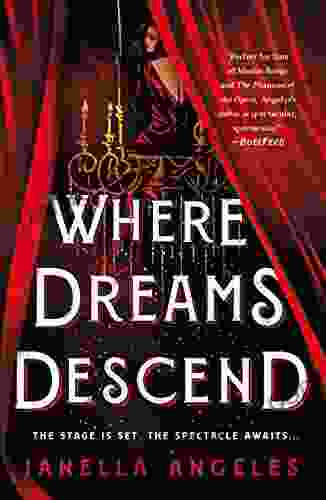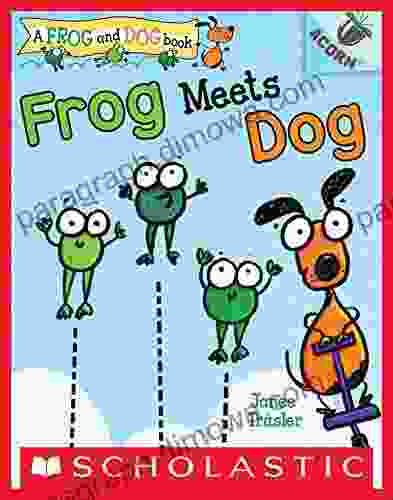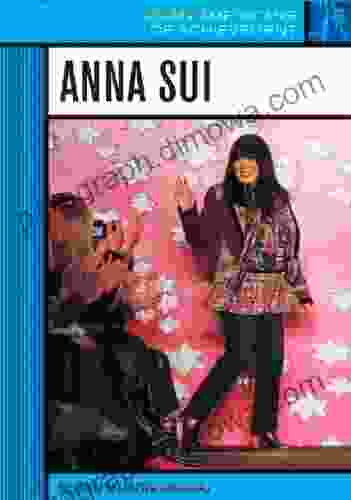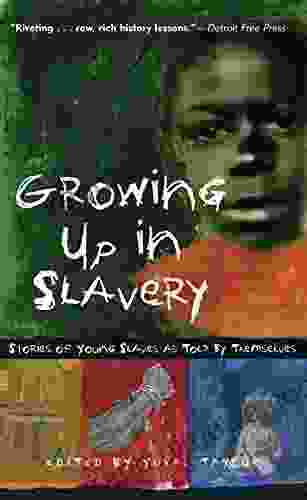Programming Coding Practice: First Program In

4.2 out of 5
| Language | : | English |
| File size | : | 363 KB |
| Text-to-Speech | : | Enabled |
| Screen Reader | : | Supported |
| Enhanced typesetting | : | Enabled |
| Print length | : | 51 pages |
| Lending | : | Enabled |
Welcome to the world of programming! If you're a complete beginner, congratulations on taking the first step towards mastering this essential skill in the digital age. This guide is designed to provide you with a solid foundation in programming concepts, helping you write your first code with confidence.
We'll start from scratch, explaining the basic principles of programming and gradually introducing you to more advanced concepts. Along the way, you'll practice writing code through interactive exercises and examples, reinforcing your understanding and building practical skills.
Chapter 1: Understanding Programming
1.1 What is Programming?
Programming is the process of creating instructions for computers to follow. These instructions, written in a programming language, are executed by the computer to perform specific tasks or solve problems.
Think of programming as a way to communicate with computers, telling them exactly what to do and how to do it. By learning the fundamentals of programming, you'll gain the power to automate tasks, solve complex problems, and create innovative solutions.
1.2 Variables and Data Types
Variables are like containers that store data in your program. Each variable has a specific data type, such as numbers, text, or logical values (true or false).
Understanding data types is crucial because it determines how variables are stored and used in the program. For example, a variable of type "integer" can only store whole numbers, while a variable of type "string" can store text.
Chapter 2: Writing Your First Program
2.1 Hello World!
The classic "Hello World!" program is a traditional first step for beginners in programming. It simply prints the message "Hello World!" to the console, introducing you to the basics of code structure and execution.
We'll walk you through writing the "Hello World!" program in a real programming language, step by step. You'll learn about the syntax of the language, understand how to compile and run your code, and witness the result firsthand.
2.2 Variables and Simple Operations
Once you've mastered the "Hello World!" program, we'll introduce variables and simple operations. You'll learn how to store and retrieve data in variables, and perform basic arithmetic and logical operations.
Interactive exercises will allow you to practice using variables and operations, reinforcing your understanding and building confidence in your programming abilities.
Chapter 3: Control Flow and Loops
3.1 Conditional Statements
Control flow statements allow you to control the execution path of your program. Conditional statements, like "if-else" statements, evaluate a condition and execute different code depending on the result.
We'll explain how to use conditional statements to make decisions in your program, based on user input, data comparisons, or other conditions.
3.2 Loops
Loops are used to repeat a block of code multiple times, making your programs more efficient and versatile. We'll cover different types of loops, such as "for" loops and "while" loops, and show you how to use them effectively in your code.
Interactive exercises will provide you with hands-on experience in using control flow statements and loops, enhancing your problem-solving and programming skills.
Chapter 4: Functions and Objects
4.1 Functions
Functions are reusable blocks of code that perform specific tasks. They can be called from different parts of your program, making your code more organized and maintainable.
We'll teach you how to define, call, and pass arguments to functions. You'll also learn about the benefits of using functions, such as code reusability and improved program structure.
4.2 Objects and Classes
Objects represent real-world entities in your program, and they encapsulate both data and methods (functions) that operate on that data. Classes are blueprints for creating objects, defining their structure and behavior.
We'll introduce you to the concepts of object-oriented programming, explaining how objects and classes can simplify complex programs and make your code more manageable.
Chapter 5: Putting It All Together
5.1 Building a Simple Calculator
By now, you'll have a solid foundation in programming concepts. To test your skills, we'll guide you through building a simple calculator program.
You'll apply all the concepts you've learned so far, from variables and operations to control flow and functions. This project will provide you with a practical experience in designing and implementing a complete program.
5.2 Beyond the Basics
Once you've mastered the basics, we'll briefly introduce you to more advanced concepts, such as data structures, algorithms, and software design patterns.
These topics will provide you with a glimpse into the broader world of programming and inspire you to continue your learning journey.
Congratulations on taking your first steps in the exciting world of programming! By following this guide and practicing regularly, you'll build a strong foundation in programming concepts and gain the confidence to write your own code. Remember, programming is a skill that takes time and dedication to master. Embrace the learning process, experiment with different code snippets, and don't be afraid to seek help when needed.
We encourage you to continue your learning journey by exploring online resources, joining coding communities, and tackling new programming challenges. As you progress, you'll discover the immense power and creativity that programming offers. Happy coding!
4.2 out of 5
| Language | : | English |
| File size | : | 363 KB |
| Text-to-Speech | : | Enabled |
| Screen Reader | : | Supported |
| Enhanced typesetting | : | Enabled |
| Print length | : | 51 pages |
| Lending | : | Enabled |
Do you want to contribute by writing guest posts on this blog?
Please contact us and send us a resume of previous articles that you have written.
 Book
Book Novel
Novel Page
Page Chapter
Chapter Text
Text Story
Story Genre
Genre Reader
Reader Library
Library Paperback
Paperback E-book
E-book Magazine
Magazine Newspaper
Newspaper Paragraph
Paragraph Sentence
Sentence Bookmark
Bookmark Shelf
Shelf Glossary
Glossary Bibliography
Bibliography Foreword
Foreword Preface
Preface Synopsis
Synopsis Annotation
Annotation Footnote
Footnote Manuscript
Manuscript Scroll
Scroll Codex
Codex Tome
Tome Bestseller
Bestseller Classics
Classics Library card
Library card Narrative
Narrative Biography
Biography Autobiography
Autobiography Memoir
Memoir Reference
Reference Encyclopedia
Encyclopedia Tony Blackman
Tony Blackman Michael Patrick
Michael Patrick Jan Awrejcewicz
Jan Awrejcewicz Jakob Schwichtenberg
Jakob Schwichtenberg J Tracy Power
J Tracy Power Rhiannon Frater
Rhiannon Frater Lauren Lee Merewether
Lauren Lee Merewether Jacob Johnston
Jacob Johnston Jane R Burstein
Jane R Burstein J Peter Fitzgerald
J Peter Fitzgerald Rafael Aguayo
Rafael Aguayo John Thurston
John Thurston James Robinson
James Robinson James Merrill
James Merrill James Binney
James Binney J Sydney Jones
J Sydney Jones James R Kirkwood
James R Kirkwood Suzanne Giesemann
Suzanne Giesemann James D Stein
James D Stein Joshua Mcmanus
Joshua Mcmanus
Light bulbAdvertise smarter! Our strategic ad space ensures maximum exposure. Reserve your spot today!

 Ethan MitchellTake a Bullet for You: A Thrilling Crime Novel That Will Keep You on the Edge...
Ethan MitchellTake a Bullet for You: A Thrilling Crime Novel That Will Keep You on the Edge... Griffin MitchellFollow ·18.2k
Griffin MitchellFollow ·18.2k Javier BellFollow ·18.8k
Javier BellFollow ·18.8k Vince HayesFollow ·19.4k
Vince HayesFollow ·19.4k Tim ReedFollow ·2.6k
Tim ReedFollow ·2.6k Ben HayesFollow ·14.1k
Ben HayesFollow ·14.1k Larry ReedFollow ·10.6k
Larry ReedFollow ·10.6k David MitchellFollow ·15.3k
David MitchellFollow ·15.3k Robert HeinleinFollow ·19k
Robert HeinleinFollow ·19k

 William Golding
William GoldingWhere Dreams Descend: A Literary Gateway to a Kingdom of...
Prepare yourself for a...

 Joseph Conrad
Joseph ConradAmy Tan: Asian Americans of Achievement
Amy Tan is an...

 Fredrick Cox
Fredrick CoxAn Acorn Frog and Dog: An Unforgettable Adventure for...
Embark on an enchanting journey with "An...

 Robert Reed
Robert ReedAnna Sui: An Inspiring Asian American Role Model
Anna Sui is a...

 Jeremy Cook
Jeremy CookGrowing Up in Slavery: An Unforgettable and Harrowing...
A Window into a Forgotten...
4.2 out of 5
| Language | : | English |
| File size | : | 363 KB |
| Text-to-Speech | : | Enabled |
| Screen Reader | : | Supported |
| Enhanced typesetting | : | Enabled |
| Print length | : | 51 pages |
| Lending | : | Enabled |












